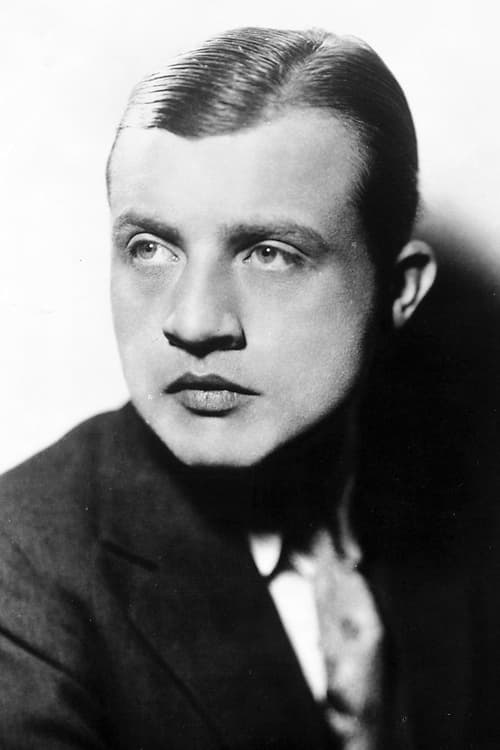Happy 125th Birthday Dwight Frye

One of the most legendary character actors of the early 20th century was Dwight Iliff Frye known as the original Renfield in 1931 Dracula. He was born in Salina, KS on February 22, 1899, to Charles Fry a farmer and Ella Nora Fry (nee Dodd) who was a deeply devout Christian Scientist. The family moved to Denver, CO when Dwight was only a few years old. It was here that he showed signs of having a brilliant career in music as an adolescent. At 15 he gave his first solo recital and was hailed a musical prodigy. However, at 18 his love of music was overshadowed by his even greater passion for theatre, and it was then that Dwight decided he wanted to be an actor. After he graduated from high school he worked briefly as a secretary for a business firm in Denver. All the while he was studying acting with one of the most celebrated drama coaches of the time Margaret Fealy. His talents for acting were quickly noticed and he joined the Denham Stock Company, where he mostly performed farces and “musical specialties”. Within a year he was touring around the country, and he had added the ‘e’ to his last name believing that it would look better in print. He was the juvenile lead with the company. During the Influenza outbreak of 1918 he traveled with the Woodward players to Spokane, Washington. In 1920 he met and began a relationship with a young actress named Laura Mae Bullivant.
In 1922 at just 23 years old Dwight found success on Broadway in the play Six Characters in Search of an Author. He then starred as the romantic lead in Rita Coventry, but his greatest success on Broadway was as Melville Tuttle in Patrick Kearney’s A Man’s Man. Six years later and now a full-fledged Broadway star Dwight married his longtime girlfriend Laura Bullivant on August 1, 1928. Shortly after Dwight opened a Tea Room with his mother who had moved to New York to be near her only child. The Tea Room was located near Central Park and did quite well becoming popular with some of Broadways brightest stars of the day. However, due to the Great Depression, the Tea Room closed and Dwight, now aged 30, decided to move to California and try his luck in Hollywood. He first found success in Los Angeles on the stage starring in Patrick Hamilton’s Ropes End. His film debut was in the silent film The Night Bird. He then made his “talkie” debut as a ruthless gangster named Monk in The Doorway to Hell. He was then cast in the film Man to Man playing the pathetic villain Vint Glade. It was 1930 and Dwight was finding his place in the glitz and glamour of Hollywood. At the end of the year Dwight became a father with the birth of his only child a son Dwight David Frye born the day after Christmas, December 26, 1930.
In 1931 he won the role that made him a legend: Renfield. Starring alongside Bela Lugosi in the hit Dracula he found his niche as a character actor. He continued to find work which included reuniting with Bela Lugosi in The Black Camel. He is also the original Wilmer Cook starring in the 1931 version of The Maltese Falcon. As 1931 ended he played another iconic character, Fritz in James Whale’s Frankenstein. Whale liked Dwight so much that he cast him in five more films. Dwight then left the screen for a few years and focused on stage work. In 1935 Whale cast him as Karl in The Bride of Frankenstein. Between 1935 and 1941 Dwight did a number of B-rated films, playing roles that were quickly forgotten. He also had minor roles in subsequent Frankenstein films.
His last notable work before the United States was plunged into World War II was in Sky Bandits. Dwight’s final film was Dangerous Blondes, he was 44 years old and had one line of dialogue, but his career had spanned 25 years. Now Dwight who was diagnosed with a serious heart condition that prevented him from serving his country decided to do his part to help with the war effort and he took a job at the Lockheed Aircraft Company as a draftsman. He was a devout Christian Scientist and refused treatment for his condition. He was offered a chance to return to Broadway in The Patriots but declined and continued to work at Lockheed. His hopes for a successful career in Hollywood, however, were renewed in the Autumn of 1943 when he won the role of World War I Secretary of War Newton D. Baker in the epic Technicolor film Wilson. Sadly, this was not to be as just three days before filming began Dwight after taking his wife and son to the movies for a double feature collapsed while running to catch the bus. On November 7, 1943, Dwight Iliff Frye was dead at 44 years old of coronary thrombosis. The New York Times wrote in his obituary: “Mr. Frye was best known in motion pictures as a character actor who was murdered or mistreated by the ‘monster men’ of horror film.” He was known as “The man with the Thousand-Watt Stare” and as “The Man of a Thousand Deaths.”
His wife Laura remarried family friend Alexis Luce in 1946 and they moved with Dwight David to Maine. Dwight’s mother Ella had followed her son to California and that is where she remained until her death in 1969. She is buried next to her brother Harry in Pomona, California. His father died sometime before Ella moved to New York in the late 1920s. His son Dwight David got a degree in Chemical Engineering and served in the U.S. Army in Europe. He then followed in his father’s footsteps and appeared several times on Broadway before working for many years behind the scenes on many productions. He never married and never had any children, rather he spent much of his life preserving his father’s legacy. He collaborated with authors Gregory W. Mank and James T. Coughlin to write his father autobiography entitled “Dwight Frye’s Last Laugh” Dwight David died of emphysema at the Veteran’s Hospital in the Bronx on March 27, 2003. He was cremated and interred next to his mother and stepfather at Silver Lake Cemetery in Maine. Dwight would earn the praise he deserved many years after his death when his films became cult classics. He was even given tribute in Alice Coopers 1971 hit “Ballad of Dwight Fry”. In life Dwight was undervalued and rarely praised for his work but in death his characters and films became legendary classics that many in the industry today look to for inspiration.
Thanks for reading. Be sure to share and subscribe. You can also help support independent journalism in Kansas by buying me a coffee at buymeacoffee.com/kscon.

Emily Brannan
Emily Brannan is a born and raised Kansan. Graduating from Missouri Southern State University in Joplin, MO with a Bachelor of Arts in History with a minor in American Studies, she is now a historian, writer, and researcher.
